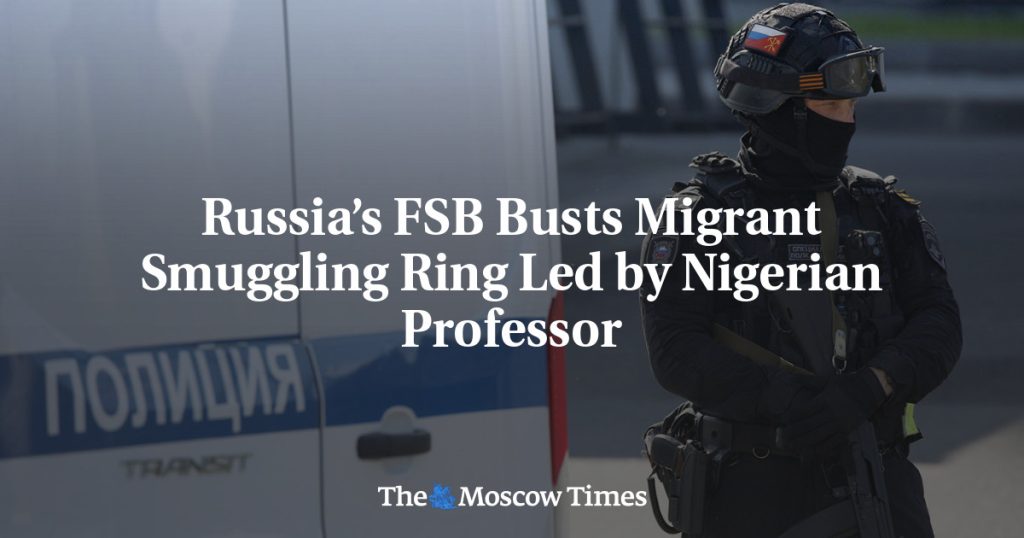Russia’s Federal Security Service (FSB) recently announced the dismantling of a migrant smuggling network allegedly led by a university instructor from Nigeria. The FSB reported that the group facilitated the paid entry and transit of immigrants from the African continent through Russian territory to EU countries. The alleged leader, a senior lecturer at the engineering academy of the People’s Friendship University of Russia, remains unnamed but has been detained along with five other key members of the network, including Russian, Nigerian, and Ukrainian nationals. Authorities are continuing to investigate additional accomplices in this operation.
The smuggling network is accused of generating at least 60 million rubles ($650,000) since 2021 by providing fake Russian residence papers and visas through fictitious marriages and paternity documents. Footage released by TASS showed FSB agents conducting raids, including searches of homes and outdoor areas. During interrogations, individuals admitted to participating in fictitious marriages to Nigerian nationals. Additionally, the FSB reported rescuing three Russian nationals who had been held captive and exploited by the smugglers during one of the raids conducted in the Vladimir region. These individuals have been handed over to the police for further assistance.
The FSB’s announcement comes after Finland’s decision to close its border with Russia last year, citing Moscow’s use of migrants from Africa and the Middle East in a “hybrid attack.” The Kremlin denied these allegations. The crackdown on the smuggling network sheds light on the ongoing issues related to illegal immigration and human trafficking in the region. The FSB’s efforts to dismantle such networks demonstrate the government’s commitment to combating these criminal activities and protecting the rights and safety of migrants and refugees.
The dismantling of the smuggling network underscores the importance of international cooperation in addressing transnational crimes such as human trafficking and illegal immigration. With borders being used as tools for geopolitical influence and leverage, it is crucial for countries to work together to prevent the exploitation of vulnerable populations for political gain. The involvement of individuals from various nationalities in this smuggling network highlights the need for a unified approach to combatting organized crime and ensuring the safety and security of all individuals involved in migration.
As the FSB continues to investigate other possible accomplices in the smuggling network, it is essential for authorities to thoroughly examine all aspects of the operation and ensure that all responsible individuals are brought to justice. The rescue of individuals who were being exploited by the smugglers demonstrates the importance of swift action in protecting vulnerable populations from harm. By cracking down on such criminal activities, law enforcement agencies send a strong message that illegal immigration and human trafficking will not be tolerated, and those involved will face consequences for their actions.
The FSB’s successful operation in dismantling the smuggling network highlights the ongoing challenges posed by illegal immigration and human trafficking in the region. By disrupting these criminal activities, authorities can prevent further exploitation of vulnerable populations and stem the flow of illegal immigrants through Russia to EU countries. The involvement of individuals from different nationalities in the smuggling network emphasizes the need for global cooperation in combatting organized crime and protecting the rights of migrants and refugees. As investigations continue, it is important for authorities to remain vigilant and take swift action against those involved in such illegal activities to ensure the safety and security of all individuals.














